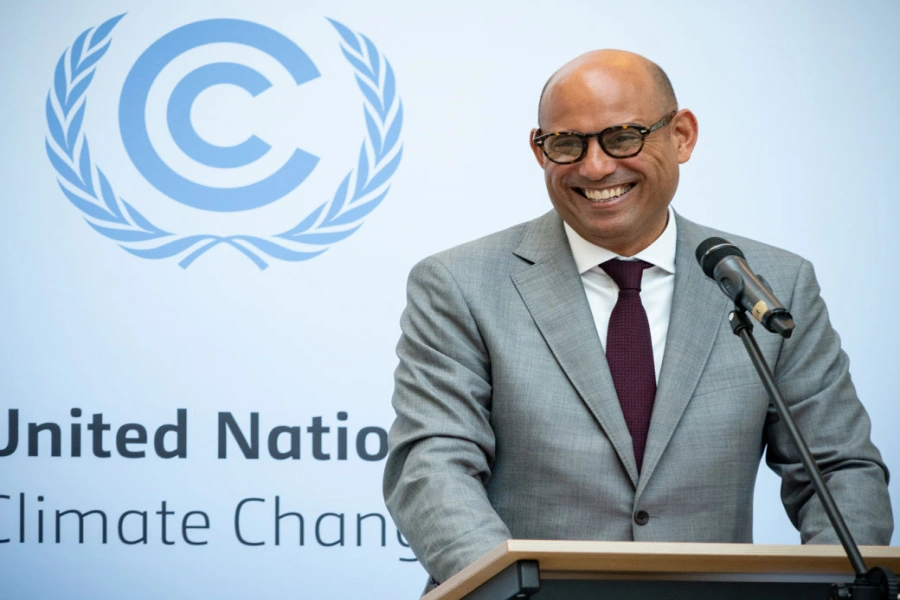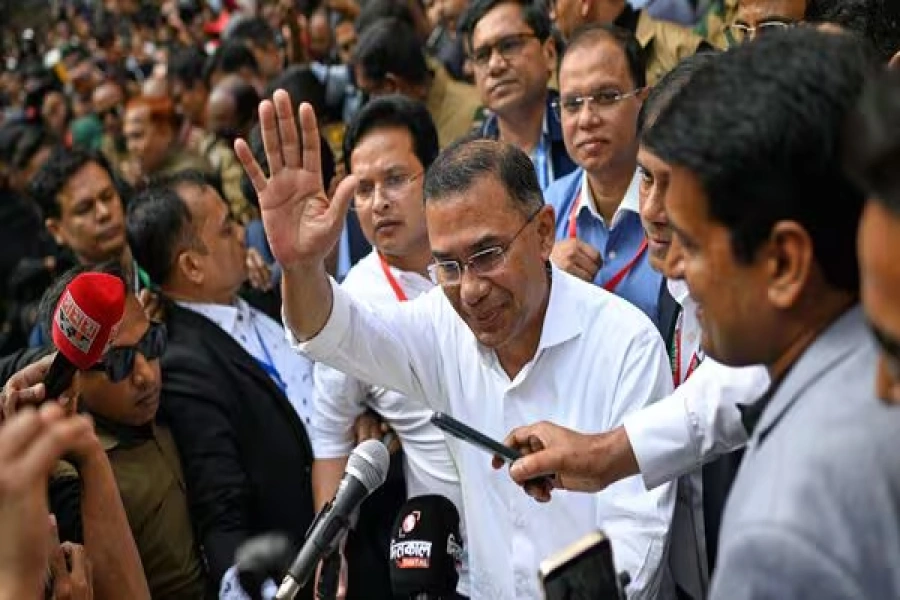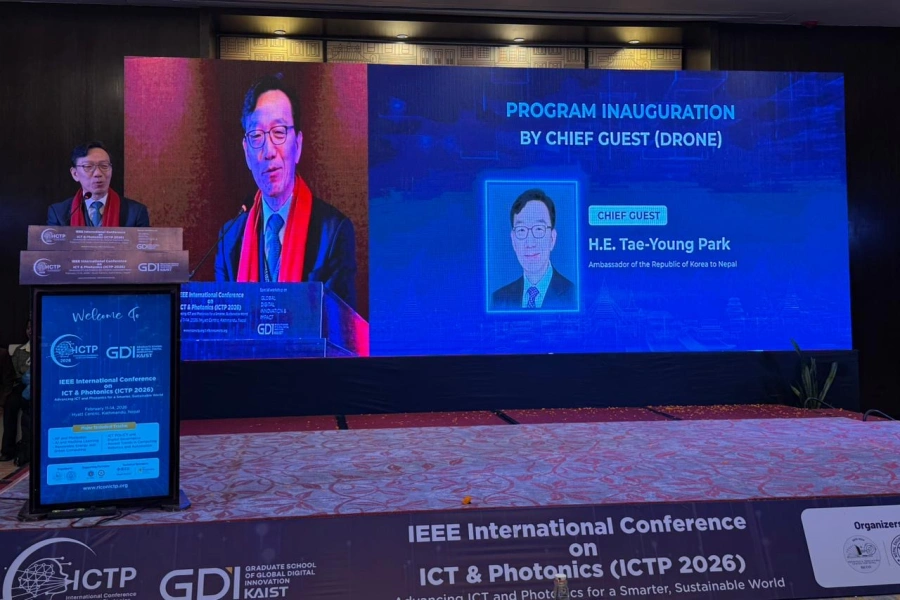KATHMANDU, Aug 14: Stakeholders are currently engaged in an intense debate on whether to retain or remove the 30-year service limit for high ranking officials of Nepal Police and Armed Police Force.
The provision for retirement of police officials after completion of 30 years of service has courted controversy ever since it was introduced by the Maoist-led government in 2008 as a measure to restructure the police force. Critics have long been arguing that the provision introduced by the Maoists after joining the peace process and winning a landslide victory in election was aimed at destabilizing the police organizations which they had fought against for a decade starting 1996.
Prior to the controversial provision, police officials used to retire at the age of 58 irrespective of the years of service. However, after this provision was introduced, experienced and seasoned police officers were forced to retire prematurely, causing a leadership crisis within the police forces.
The controversy has reached its peak as both Nepal Police and the Armed Police Force face reduced job appeal. The debate centers around whether removing the 30-year service limit and extending the service period for higher ranks would cause difficulties.
While lower-level police personnel are pressuring the government to reduce the pension period to 16 years, arguing that there is no future for them in the organization, higher-ranking police officers have been lobbying to remove the 30-year service limit.
The Ministry of Home Affairs (MoHA) has also proposed removing the 30-year limit and has drafted a report in this regard. This has led to a division among police officials in both the organizations. The MoHA has adopted a middle-approach to resolve the issue. A study committee has concluded that while the 30-year service limit may be removed, it should not be implemented immediately.
IGP Singh lobbying to increase 30-year service limit in Nepal P...

The study committee led by Joint Secretary Jhakka Prasad Acharya of the MoHA submitted a report to Home Minister Ramesh Lekhak recently recommending the removal of the 30-year service limit in the Armed Police Force starting from the year 2095 BS (2038 AD). For the Nepal Police, the report suggests gradually extending the term by six months before its removal. However, police officials argue that both proposals lack scientific basis. The proposal suggests extending the service period for police personnel nearing retirement by six months. There is currently extensive debate within the police force regarding the 30-year service term.
A similar issue exists in the Armed Police Force as well. Recently, the number of candidates passing the examination for the post of inspector was lower than expected. "Due to intense political interference and weak prospects for career advancement in both police organizations, fewer people are interested in joining the service," said a police official.
Three years ago, the government rejected a proposal to reduce the minimum pension period for Nepal Police personnel to 16 years. In December 2021, a meeting of the Bills Committee of Parliament decided to maintain the minimum pension period at 20 years. This rule has already been implemented in the Nepalese Army.
After completing a 16-year service period, soldiers were allowed to resign, but pensions would only be granted after completing 20 years of service in the Nepali Army.
The same provision was proposed for Nepal Police employees by the police headquarters. However, it is claimed that higher-ranking police officials who rejected this proposal were intending to extend their own tenure. Lower-level police personnel have repeatedly demanded the 16-year pension provision.
The decision was based on the conclusion that choosing retirement at 16 years would leave individuals with sufficient age to pursue another career or business. Many police officers opting for voluntary retirement have sought foreign employment, where the age limit is generally around 40 years. Due to the possibility of seeking employment abroad upon retiring at 16 years, there has been a consistent demand for such a provision from the police force.
It is reported that immediately removing the 30-year service term in the Nepal Police would obstruct the promotion of over two hundred personnel. However, police officials advocating for the removal of the service limit argue that it would compel officers to retire while still of working age, thus depriving the state of their services. They believe that immediate removal of the 30-year service term is necessary and have been demanding changes to the regulations to eliminate the service period and establish a fixed term of service. They claim that not addressing this issue would be an injustice to deserving officers.
On August 31, 90 police officers aged between 50 and 55 will be retiring. They have also been demanding the removal of the 30-year service term in favor of establishing a fixed term of service or age limit.
On the other hand, removing the 30-year service term in the Armed Police Force would mean that inspectors recruited through open competition might have to remain in the same position for up to 27 years. Therefore, the immediate removal of this term seems unlikely there as well. The report submitted to the Home Minister on August 1 by the study committee led by Acharya suggests that it would take a long time to remove this provision in the Armed Police Force.
The study committee included Under Secretary Krishna Gaire from the MoHA, Deputy Inspector General (DIG) Deependra Shah from the Armed Police Force, DIG Rajan Adhikari from the Nepal Police, former DIG Purushottam Kandel, and Under Secretary Rishi Poudel from the Legal Section of the MoHA. The committee recommended that both the Nepal Police and the Armed Police Force should develop a "career plan" to ensure that those entering as inspectors have a path to advance at least to the rank of DIG.
The long-standing issue in the Nepal Police and Armed Police Force remains unresolved. Every Inspector General of Police has attempted to remove the 30-year service term, but these efforts have consistently failed.
Various past commissions have also proposed the removal of the 30-year service term, but these recommendations have not yet been implemented. The Police Reform Recommendation Commission's 1998 report suggested that "since police personnel at various levels automatically retire upon reaching certain ages or terms, it seems appropriate to remove the current 30-year service term."
Similarly, during the tenure of Home Minister Bamdev Gautam, the report of the High-Level Task Force for Reforms of the Security Agencies of Nepal led by Yubraj Sangroula in 2008, recommended maintaining only the retirement age and term limits for police service while removing the 30-year service term. Additionally, the commission led by Kuber Singh Rana also suggested setting age limits and term limits for retirement in the Nepal Police.






































